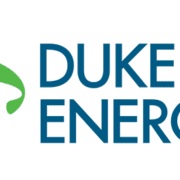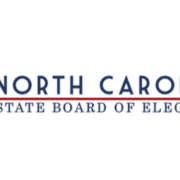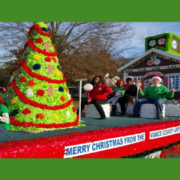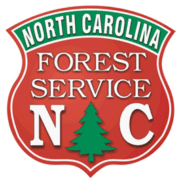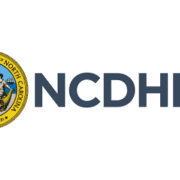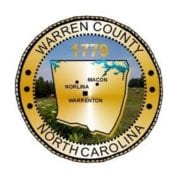Duke Energy Warns Customers to Beware of Utility Scams
100.1 FM ~ 1450 AM ~ WIZS, Your Community Voice ~ Click to LISTEN LOCAL
-Press Release, Duke Energy
The phone rings. It’s Duke Energy. We’re on the way to disconnect your electric service unless you pay us over the phone right now. You follow the instructions and – just like that – you’ve been scammed.
Sadly, this is not an uncommon phone call. That’s why Duke Energy has again joined forces with utilities across the continent to bring awareness to these criminal scam tactics on the fifth annual Utility Scam Awareness Day on November 18. Utility Scam Awareness Day is part of the week-long International Scam Awareness Week, an advocacy and awareness campaign focused on educating customers and exposing the tactics used by scammers.
“As the COVID-19 pandemic continues, it’s absolutely critical to remind all utility customers to beware of impostors attempting to scam them,” said Jared Lawrence, Duke Energy’s vice president of revenue services and metering. “We’ve made great progress as an industry in getting the word out the past few years, and the numbers continue to improve. But so do the scammers, and that’s why we must continue to keep our customers informed and aware so they don’t become the next victims. Together, we can stop scams.”
Recognized annually, Utility Scam Awareness Day was created by Utilities United Against Scams (UUAS), a consortium of nearly 150 U.S. and Canadian electric, water, and natural gas companies and their respective trade associations.
Scamming through the pandemic
Duke Energy – a founding member of UUAS – and the consortium’s other member companies have seen an increase in scam attempts appearing to take advantage of the uncertainty of the pandemic. In addition to the frequent impostor scam, some new tactics include bogus COVID-19 references to steal personal information. Although impostors continue to target utility customers, UUAS members and partners have succeeded in taking nearly 9,400 scam telephone numbers out of operation.
“At the height of the pandemic, scammers preyed on Duke Energy customers with an alarming frequency,” Lawrence said. “The good news? Most people didn’t fall for it.”
When the UUAS campaign started in 2016, more than nine percent of Duke Energy customers who reported scams lost money, and so far this year less than three percent have reported falling for scams. That’s still nearly $400,000 of hard-earned money lost to scammers in less than a year, and the reason why more work needs to be done to get the word out.
“Customers need to be on high alert as we continue to see impostor utility scams rise across North America,” said UUAS Executive Director Monica Martinez. “Scammers demand money or personal information on the spot – usually with threatening language – and indicate that service will be disconnected immediately. Anyone and everyone, from senior households to small business owners, is at risk of being targeted.”
UUAS advises customers who suspect that they have been victims of fraud or who feel threatened during contact with a scammer to contact their local utility or law enforcement authorities. Here are tips to protect yourself from falling victim to utility scams:
Common scam tactics include:
- Threat to disconnect: Scammers may aggressively tell a customer their utility bill is past due, and service will be disconnected—usually within an hour—if a payment is not made.
- Request for immediate payment: Scammers might instruct a customer to purchase a prepaid card, cryptocurrency, or to send funds via a mobile app to make a bill payment.
- Request for prepaid card or payment through certain mobile apps: Customers are instructed to pay with a prepaid debit card. The impostor asks for the prepaid card’s number, which grants instant access to the card’s funds. More recently, customers have also been instructed to send a payment through a mobile app. Duke Energy currently does not accept payments through the Cash App, Venmo or Zelle apps. However, customers can make payments on Duke Energy’s mobile app available in the Apple App Store for iOS and the Google Play Store for Android.
- Personal information: During the COVID-19 crisis, criminals are promising to mail refund checks for overpayments on their accounts if they can confirm their personal data, including birthdays and, in some cases, Social Security numbers. Duke Energy will apply refunds as a credit to customers’ accounts and will not contact customers to verify personal information by phone, email or in-person in order to mail a check.
Protect yourself
- Customers should never purchase a prepaid card to avoid service interruption. Utility companies do not specify how customers should make a bill payment and always offer a variety of ways to pay a bill, including online payments, phone payments, automatic bank drafts, mail, or in person.
- If someone threatens immediate service interruption, customers should be aware. Customers with past due accounts receive multiple advanced notices, typically by mail and in their regular monthly bill. Utilities will never notify of a disconnection in one hour or less.
- If customers suspect someone is trying to scam them, they should hang up, delete the email, or shut the door. The utility should be contacted immediately at the number on the most recent monthly bill or on the utility’s official website, not the phone number the scammer provides. If customers ever feel that they are in physical danger, they should call 9-1-1.
Visit Duke Energy’s brand journalism site, illumination, to learn more about Lawrence’s involvement in founding Utilities United Against Scams and to download a call from a customer who reported being scammed.

